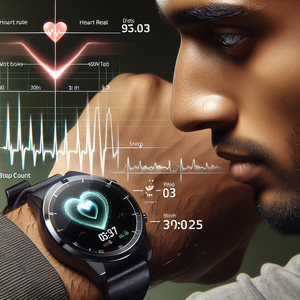The Future of Medical Assisting: Emerging Roles and Opportunities

As healthcare becomes increasingly specialized, the demand for medical assistants in specific fields is growing. Medical assistants focusing on areas such as pediatrics, geriatrics, or dermatology develop unique skills tailored to the populations they serve. These specialized roles often necessitate additional training and certification, but they can lead to rewarding career paths with greater job security.
Telehealth Medical Assistant
The COVID-19 pandemic has accelerated the adoption of telehealth services, a trend that shows no sign of diminishing. Telehealth medical assistants are now essential for facilitating virtual patient interactions, managing electronic health records, and ensuring that patients receive quality care remotely.
Health Informatics Specialist
With the increasing reliance on electronic health records (EHR) and data analytics, medical assistants are finding new opportunities in health informatics. These professionals operate at the intersection of healthcare and technology, assisting organizations in optimizing their data management systems, improving patient care processes, and ensuring compliance with regulations.
Preparing for Future Opportunities
To thrive in these emerging roles, aspiring medical assistants should consider several strategies: Pursue Continuing Education, Develop Technological Proficiency, Network and Seek Mentorship.
The future of medical assisting is promising, filled with emerging roles and opportunities that are reshaping the profession. As healthcare continues to innovate and adapt, medical assistants must remain agile, embracing change and seeking ongoing education and specialization. By staying informed about industry trends and honing their skills, aspiring medical assistants can position themselves for success in this dynamic field.
Telehealth Coordinator
Telehealth service providers, hospitals expanding telehealth services, and outpatient clinics
Core Responsibilities
Facilitate and manage virtual patient appointments, ensuring smooth operation of telehealth platforms.
Train patients on the use of telehealth technology and troubleshoot any issues that arise during consultation.
Collaborate with healthcare providers to streamline telehealth workflows and improve patient engagement.
Required Skills
Strong communication and interpersonal skills to effectively assist patients remotely.
Proficiency with telehealth software and electronic health records (EHR) systems.
Problem-solving abilities to address technical issues in real-time.
Pediatric Medical Assistant
Pediatric clinics, children's hospitals, and family healthcare practices
Core Responsibilities
Assist pediatricians with routine exams, immunizations, and developmental screenings for children.
Educate parents on child health issues, vaccination schedules, and wellness practices.
Maintain pediatric medical records and ensure compliance with relevant regulations.
Required Skills
Knowledge of child development and pediatric health laws.
Certification as a Pediatric Medical Assistant (CPMA) is often preferred.
Strong organizational and multitasking skills to handle various patient needs efficiently.
Health Informatics Analyst
Hospitals, healthcare IT companies, and public health organizations
Core Responsibilities
Analyze healthcare data to improve patient care processes and outcomes.
Collaborate with IT teams to implement and optimize electronic health record systems.
Ensure regulatory compliance related to patient data and privacy standards.
Required Skills
Proficiency in data analytics tools and software (e.g., SQL, Tableau).
Understanding of healthcare regulations such as HIPAA.
Strong analytical skills to interpret complex data sets and recommend actionable improvements.
Geriatric Medical Assistant
Assisted living facilities, geriatric clinics, and nursing homes
Core Responsibilities
Support healthcare providers in managing the unique needs of elderly patients, including medication management and chronic disease monitoring.
Provide education to patients and their families on age-related health issues and wellness practices.
Conduct routine health assessments and assist with mobility or rehabilitation activities.
Required Skills
Specialized training in geriatric care or certification as a Geriatric Medical Assistant (CGMA).
Patience and empathy, with strong interpersonal skills to effectively communicate with elderly patients.
Knowledge of age-related health challenges and effective communication strategies.
Clinical Research Medical Assistant
Research hospitals, pharmaceutical companies, and academic institutions conducting clinical trials
Core Responsibilities
Assist in the recruitment and enrollment of participants for clinical trials and research studies.
Collect and manage patient data, ensuring accuracy and compliance with research protocols.
Coordinate study visits and maintain communication between research teams and participants.
Required Skills
Familiarity with clinical trial protocols and research methodologies.
Strong organizational skills and attention to detail for maintaining accurate records.
Ability to communicate effectively with diverse populations and explain research procedures.


